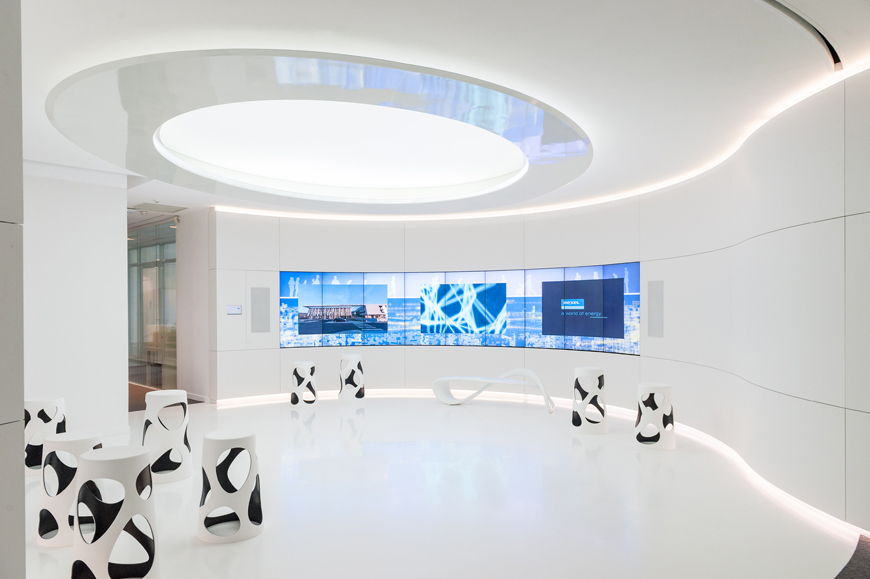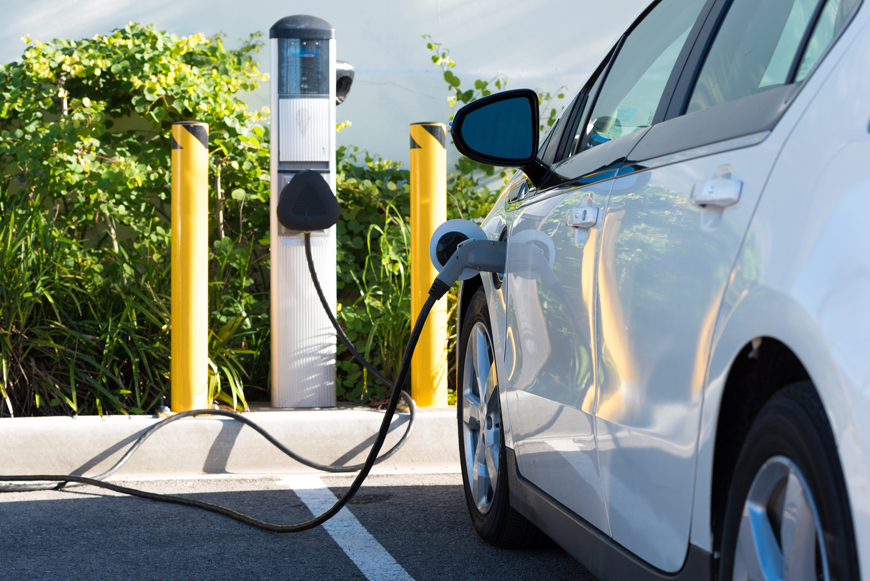Reducing Rexel’s carbon footprint
Rexel is committed to reducing the carbon footprint of its operations by at least 35% by 2030 (compared to 2016), as well as lowering its consumption of natural resources.
It's seems you're located in .
Where do you want to be redirected?
Rexel is committed to reducing the carbon footprint of its operations by at least 35% by 2030 (compared to 2016), as well as lowering its consumption of natural resources.
Continuously improving Rexel’s environmental performance is contingent on the quality and coherence of its management policy. Focusing on shared commitments, it is based on centralized data gathering and a thorough assessment of the Group’s impact.
Referential framework created by Rexel, the Environmental Charter explains the Group’s environmental commitments and mobilizes employees in order to integrate environmental responsibility into everyday work practices. By late 2020, this charter had been implemented in 94% of the Group’s locations.
Every year, Rexel carries out rigorous environmental reporting that helps identify and quantify the nature of its impact in order to establish improvement programs. Verified by an independent third-party organization, it is updated every year to ensure the reliability and relevance of its data. It depends on a network of 74 environmental correspondents tasked with gathering, processing and analyzing the data used to monitor performance indicators. In 2018, the subsidiaries received a full report of their environmental impact and their progress.
The Group encourages the implementation of Environmental Management Systems (EMS), which define and document procedures for controlling environmental impact to facilitate the management of improvement plans. A standard EMS has been provided to the subsidiaries. Designed like a toolbox, it includes an implementation methodology and an array of model documents that comply with the requirements of ISO 14001, which defines and frames the implementation of an environmental management system. By late 2020, 43% of the Group’s sites had implemented an EMS, and 24% of them had obtained ISO 14001 certification.
In 2018, Austria and the United Kingdom implemented a highly structured approach by obtaining four certifications (ISO 14001, ISO 9001, ISO 50001 and OHSAS 18001).
74
environmental correspondents in Rexel’s countries of operation are tasked with gathering, processing and analyzing data used to monitor performance indicators.
43%
of the Group’s sites had implemented an EMS by late 2020
24%
of the Group'sites had obtained ISO 14001 certification by late 2020
Raising employee awareness is an important pillar of the Group’s environmental approach. The aim is not only to disseminate policy and action plans, but also to encourage the adoption of sustainable practices – eco-friendly gestures – every day. The EcoDays campaigns, open to all employees on a trilingual website, are an indispensable disseminator.
Aimed at all of the Group’s employees, the EcoDays campaigns are intended to inform them about Rexel’s approach to reducing its ecological footprint while highlighting the initiatives enacted at the global and the local level. Also, the Rexel Academy is involved in raising awareness, with training programs on sustainable development. All these initiatives contribute to the goal of informing 100% of the Group’s employees about sustainable development.
The greenhouse gas emissions associated with the energy combusted on-site represent around 29% of the Scope 1 Group’s emissions (2020 figures). To lower these emissions, while setting an example of implementing the energy efficient and renewable energy solutions that the Group promotes, Rexel is taking active measures.
When moving into new offices, Rexel gives preference to recent buildings that were constructed in compliance with certified energy regulations. The Group’s Paris headquarters have thus been certified “HQE Exploitation” since 2016.

For all other locations, renovations take precedence: low-consumption lighting, technical building management, motion sensors to optimize energy consumption, renewable energy use (solar panels, biomass, etc.), consumption management.
By the end of 2018, 80% of logistics and commercial sites were equipped with LED lighting. In France, for example, Rexel moved into a new 20,000 m2 logistics warehouse near Bordeaux in 2018. This BREEAM GOOD-certified building has a nearly 2,000 m2 photovoltaic power plant on the roof, for self-consumption. The installation covers 20% of the logistics center’s energy needs. In 2020, 17,8% of electricity consumption on-site came from contracts with suppliers that use certified renewable sources.

In the area of transportation, representing 62% of the Group’s emissions (Scope 1), improvement measures are conducted continuously.
Thanks to efficient planning tools, the Group optimizes its deliveries. For example, it centralizes flows by using shared platforms and fleets, or by subcontracting with shared transportation.
In the UK, Microlise was established in 2016 across nearly all of Rexel’s utility vehicle fleet: this solution gathers data on the driver’s behavior as well as on the vehicle’s consumption and greenhouse gas emissions in real time. Its use has led to lower fuel consumption and improved drivers’ behavior.
Among the half of Rexel’s logistics flow that is subcontracted, the Group pays particular attention to the choice of service provider, preferring those who monitor the environmental performance of their vehicles and provide performance indicator reporting and driver training.

In Canada, Rexel’s subsidiary (Nedco), the leader in electric vehicle charging stations, uses Eeko Couriers’ 100% hybrid vehicle fleet. In return, the transporter enjoys free access to charging stations installed at the branch.
25.4%
reduction in emissions recorded by the Group since 2016
62%
part of transportation (commercial and internal fleet) in the Scope 1* Group’s emissions
35%
emissions reduction goal set by Rexel by 2030 (compared to 2016), reached in 2017
*Scope 1: Direct emissions from the consumption of primary energy and fuel by company vehicles
To limit the fuel consumption and GHG emissions of company vehicles, Rexel strives to streamline its fully-owned or rented vehicle fleet. The frequent updating of vehicle purchasing policies, as well as fleet renewal, are opportunities to lower the average emissions rate, for instance via the introduction of hybrid or electric vehicles.